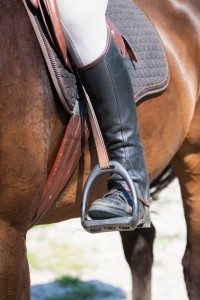In the equine world, it’s a common practice for sellers to allow their horse go “on trial” to a potential buyer to see whether or not they are a good fit. When a horse goes on a trial period, the buyer takes the horse to his or her barn to get to know the horse before making a final decision. The buyer will usually have a vet check performed during this period. A trial period mainly benefits the buyer; however, this can also help complete a sale for the seller and offering a trial period can help make their horse more marketable.
What Problems Can Arise During A Trial Period?
While trial periods have their benefits, there can also be many risks associated with them. In a simple horse sale, the buyer pays the seller on the spot and takes the horse home. However, in a trial period, the seller still owns the horse but the buyer has possession and control of the horse, which is where the line of responsibility can become blurred. A simple example of where the responsibilities and fault are questionable is if the horse colics and dies during the trial period. The seller owns the horse but the horse was in the buyer’s care when it colicked. Who is responsible? Does the buyer have to pay the seller for the horse and vet bills? What if the veterinarian cannot determine the cause of colic?
How to Avoid Such Issues
While problems such as this cannot be entirely avoided, there are many things a seller can do to protect themselves and the horse during a trial period. It’s very important to have a written agreement that covers all aspects of the trial period before the horse goes on trial to the buyer, as well as a liability release. During this time, the seller may want to contact a lawyer experienced in equine law to make sure he or she has covered everything properly. In the contract, it’s important to cover under what circumstances the seller keeps the deposit and when they must return it to the buyer. It’s also important to set boundaries, such as limiting the trial period to one week, as well as limiting what the buyer can do with the horse.
A seller may also want to consider insuring their horse, as well as checking out the barn in which the horse will be kept during the trial. This can help the seller feel more comfortable about the trial and the seller should be able to talk to or watch the buyer’s trainer at work. Finally, the buyer should know where the horse is at all times during the trial. It should be defined in the contract whether or not the potential buyer can take the horse off the designated property.
If you’re a seller and are ever in doubt about a clause that should be added to your contract, be sure to contact a lawyer experienced in equine law in order to properly protect you and your horse.
